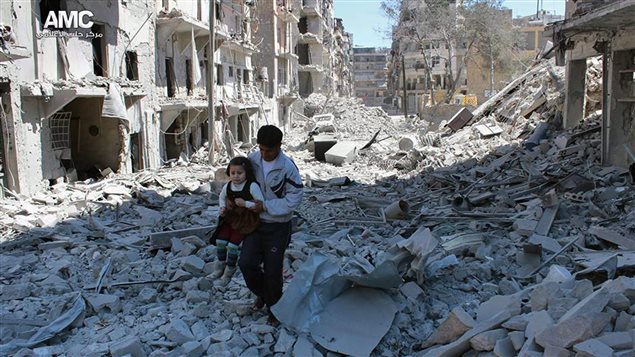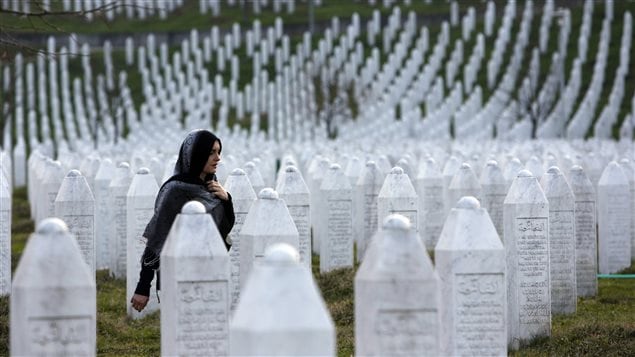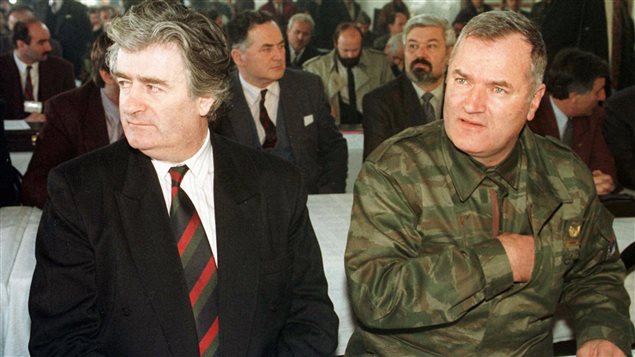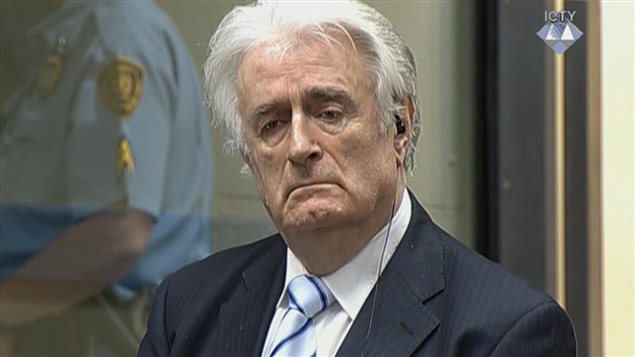The conviction of the former Bosnian Serb president Radovan Karadzic for crimes against humanity offers important lessons for a peace process in Syria and Iraq, says a Canadian international law expert.
“International law and human rights are meaningless if we allow political leaders to commit mass murder with impunity,” said Payam Akhavan, professor of international law at McGill University and a former UN prosecutor at The Hague.
In places like Syria there is no serious move to bring political leaders such as President Bashar Al-Assad to justice for the killing of an estimated 450,000 people, mostly civilians, Akhavan said in a phone interview from the United Kingdom.
“Although we are preoccupied with the social media spectacle of ISIS with horrific beheadings and burning of people alive, which has captured our imagination,” Akhavan said. “It’s estimated that up to 95 per cent of civilian deaths have been the result of actions by the government of President Assad, and not by ISIS.”
(click to listen to the full interview with Payam Akhavan)
Listen
At the time when there is a fragile ceasefire holding in Syria, when the United Nations is trying to initiate some sort of a peace process we have to ask ourselves whether any kind of peace would be sustainable in Syria if those who are responsible for mass murder remain in power, Akhavan said.
“Very often, the so-called ‘political realists’ tell the human rights activists that they are naïve, that they are idealistic, that they have to be realistic about power reality,” Akhavan said.
“But we have to equally realize that a realistic peace must be based on some measure of justice, that in a country like Syria, or Iraq, or Yemen, where conflict and violence have systematically exploited religious and ethnic identity, and ripped once multi-ethnic countries apart, we have to consider whether it’s really possible to heal those wounds and to reintegrate those fractured societies if there is not justice for the victims of these atrocities.”
Lessons of Bosnia

Akhavan says he heard the same tune in Yugoslavia in the early 1990s.
Akhavan was a young lawyer just out of law school, when he became one of the first United Nations human rights investigators.
“I served on the ground including in Bosnia, where Karadzic was then the Bosnian Serb president, where I witnessed a lot of horrible atrocities against civilians,” Akhavan said.
At the time Karadzic was seemingly untouchable: he was the Bosnian Serb president, his army was powerful, the international community was not willing to intervene, and the United Nations peacekeepers were relegated the role of observers because there was no peace to keep, Akhavan said.
What’s worse Karadzic would be accorded the dignity of the head of state every time he visited Geneva for peace talks, he said.
“That was intensely frustrating, it was outrageous to see that he was, on the one hand responsible for ethnic cleansing and genocide, while on the other hand, he was enjoying freedom and impunity,” Akhavan said.
The thought that Karadzic would one day be a defendant in The Hague was unimaginable, he said.

But following the 1995 Dayton Peace Accord, Karadzic fortunes began to change as he became a liability for the Bosnian Serb leadership.
Karadzic went into hiding for almost 13 years, changed his appearance and posed as a naturopath in a provincial town in Serbia, until his cover was blown and he was arrested.
Akhavan says given the overwhelming evidence against Karadzic, he expected the guilty verdict. Still, he breathed a sigh of relief last week, when the International Criminal Tribunal for the former Yugoslavia at The Hague delivered its historic judgment against the Bosnian Serb leader.
He was found guilty of the Srebrenica genocide, the slaughter of thousands of unarmed Muslim men and boys after the Serbian forces overran the Muslim town, and other acts of “ethnic cleansing” against countless Bosnian Muslim and Croat civilians during the horrific 1992-95 Bosnian war.
Overcoming culture of impunity
“It took 20 years from the time we prepared the indictment against him until his conviction,” Akhavan said.
His sentence of 40 years means that he will spend the rest of his days behind bars.
These are important lessons for a peace process in Syria and Iraq, Akhavan said.
Throughout the UN era, there was a culture of impunity in which genocidal leaders not only went unpunished but very often they were rewarded exactly because of their ruthlessness, Akhavan said.
“The Karadzic judgment is a reminder that there are no easy or immediate solutions for victims seeking redress,” Akhavan wrote in an op-ed piece in the Globe and Mail newspaper. “But it is also a reminder that with moral clarity and political persistence, it is possible to subject once untouchable tyrants to the rule of law and to build a better future. For genocide, justice delayed is better than justice denied.”







For reasons beyond our control, and for an undetermined period of time, our comment section is now closed. However, our social networks remain open to your contributions.